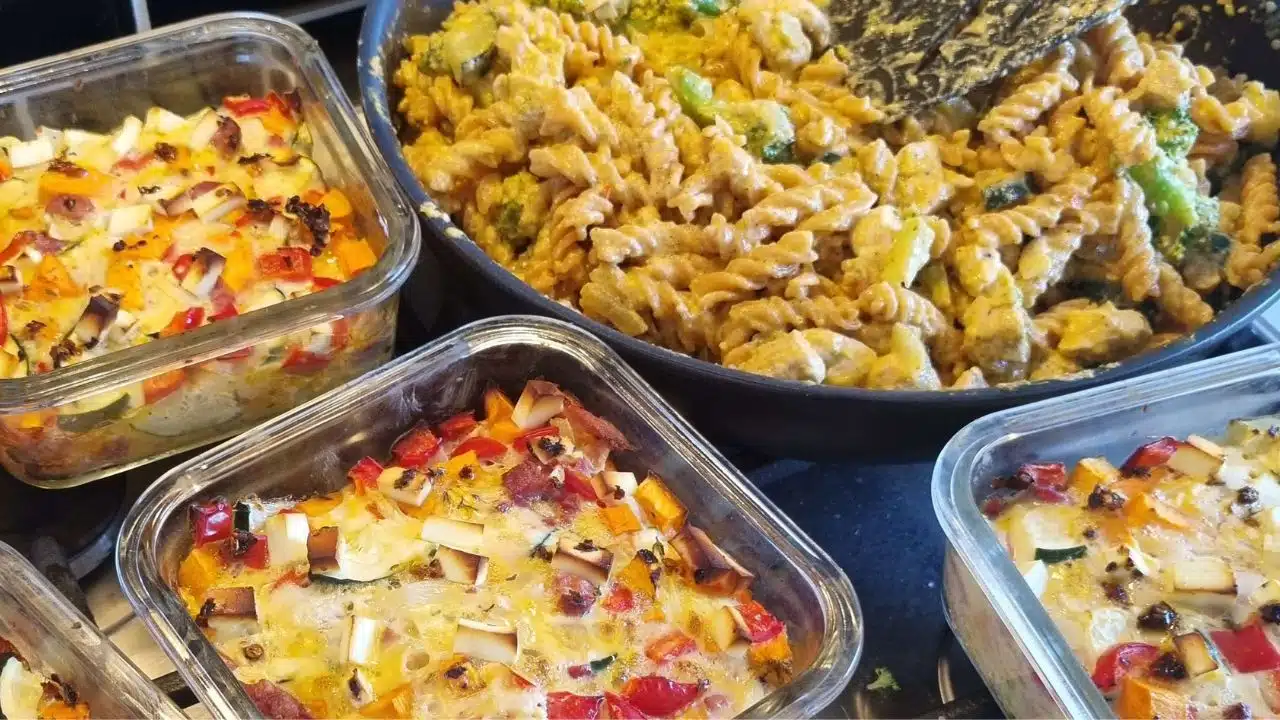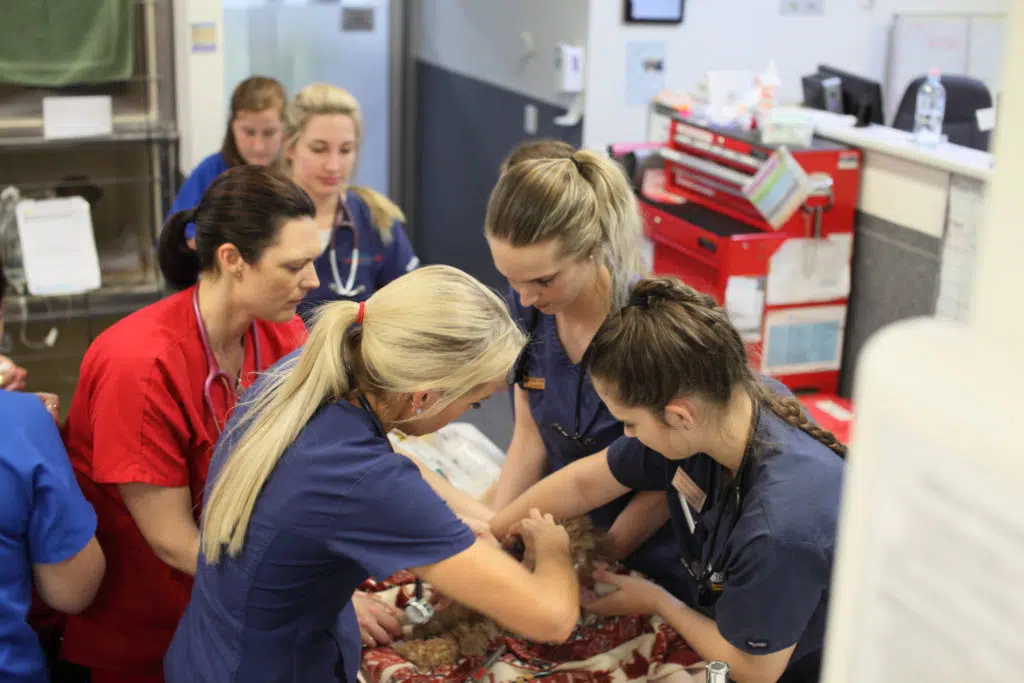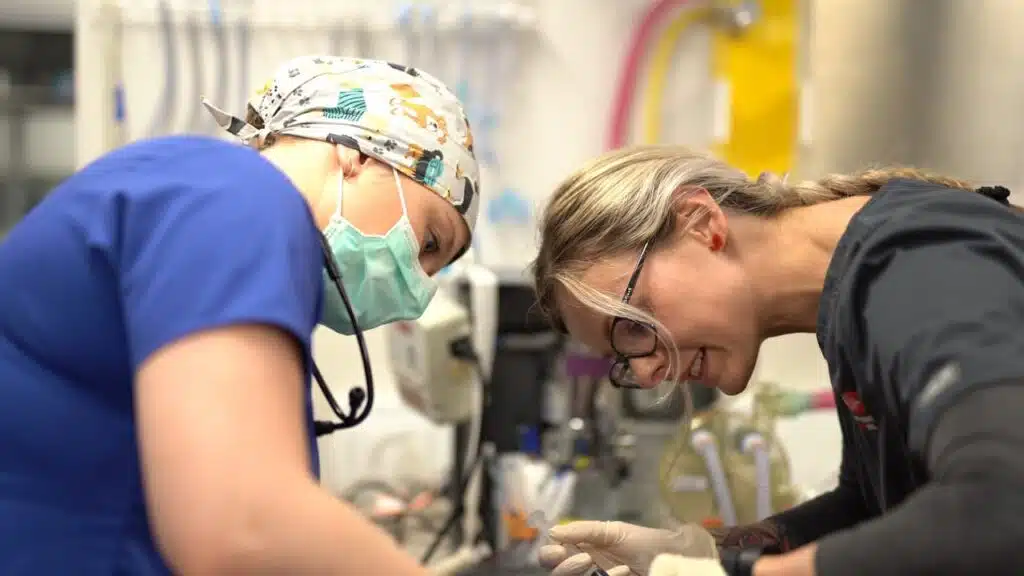As a veterinary professional, we all know that days are often filled with caring for animals and managing the demands of a busy clinic. With long shifts and unpredictable schedules, finding time to cook healthy meals (let alone scoff them down) can be a challenge. This is where meal prep can be a game-changer!
Meal prep involves preparing meals in bulk and storing them for later use. It not only saves you time and money but also ensures that you’ll actually have nutritious meals to grab at any time, even on your busiest days. In this guide, we’ll explore the benefits of meal prep for veterinary professionals and provide you with practical tips on how to get started.
Whether you’re new to meal prepping or looking to up your game, this guide will help you make the most of this time-saving strategy. From planning your meals to finding simple and balanced recipes (or other alternatives), we’ve got you covered. So what are the benefits of meal prep anyway?

The Benefits of Meal Prep for Veterinary Professionals
Time-Saving
With meal prep, you can prepare multiple meals at once, saving you time during the week. It might seem like a lot of work initially cooking big batches, but it definitely pays off! Instead of cooking every day after a long shift, you can simply reheat a pre-prepped meal and have your dinner ready in minutes.
Cost-Effective
Buying ingredients in bulk for meal prep can be more cost-effective than purchasing individual meals or takeaway every day (and far better for you too). Found a bargain on a particular ingredient? Buy a heap, incorporate it into your meal prep, and refrigerate/freeze the meals to make the most of ingredients that are on special.
Healthier Choices
Meal prep allows you to control the ingredients in your meals, helping you make healthier choices. You can include more vegetables, lean proteins, and whole grains in your meals. There’s also plenty of ways to take favourite classics and turn them into meal prep recipes! Just because it’s healthy doesn’t mean it can’t taste great.
Reduced Stress
Knowing that you have meals ready to go can reduce stress, especially during busy weeks or when you’re working long shifts. Who wants to come home after a hectic shift and cook dinner anyway?
Portion Control
By pre-portioning your meals, you can avoid overeating (or undereating) and ensure you’re getting the right amount of nutrients. Having enough decent food to help you power through a busy shift is essential and will help you feel better at the end of the day.

How to Get Started With Meal Prep
So finding the time to cook a whole week’s worth of meals at once might sound impossible – but it’s easier than you think! Here’s a few simple tips to help you get started:
- Plan Your Meals: Start by planning your meals for the week. Consider your schedule and choose meals that are easy to prepare and reheat.
- Invest in Quality Containers: Invest in good-quality, microwave-safe containers for storing your prepped meals. These can easily be found at Kmart or Ikea. Make sure they’re the right size for your portions.
- Double the Recipe: Look for simple and balanced recipes with common ingredients that are easy to prepare in bulk (like a bolognese or bake). Then double all the ingredients to cook twice as many meals!
- Prep in Batches: Dedicate a set time each week to meal prep. If you’re not following a set recipe, cook large batches of proteins, grains, and vegetables that you can mix and match throughout the week.
- Store Properly: Store your prepped meals in the fridge or freezer, depending on when you plan to eat them. If you’re freezing them, label each container with the date to keep track of freshness.
Start simple – cook dishes you’re already familiar with, and before you know it you’ll have a fridge or freezer full of meals you can easily grab at any time.

Meal Prep Resources
Gone are the days of flicking through a dusty old cookbook that’s been sitting on the shelf for decades – now you’re able to find meal prep inspiration pretty much everywhere:
Online Resources: Look for meal prep blogs, websites, and YouTube for inspiration. Many websites offer free meal plans and recipes tailored to specific dietary needs.
Social Media: there are millions of recipes out there on social media! Just search “meal prep” on Facebook, Instagram, or TikTok and you’ll be amazed at the options. Many of these will include step-by-step videos for extra guidance.
The Old Fashioned Way: Still can’t go past a good cookbook? Then invest in a good meal prep cookbook for a variety of recipes and ideas – there are heaps of them available.
Meal Prep Services: Want to avoid the hassle of groceries? Consider using a meal prep service like YouFoodz that delivers pre-portioned ingredients and recipes to your door. Or skip the cooking altogether and consider a service like Lite ‘n’ Easy.
Meal prepping can be a game-changer for veterinary professionals, helping you save time, money, and stress while ensuring you have nutritious meals ready to go. Start by planning your meals, investing in quality containers, choosing simple recipes, prepping in batches, and storing your meals properly. With a little bit of planning and preparation, meal prepping can make the time after your busy shifts a whole lot easier.




